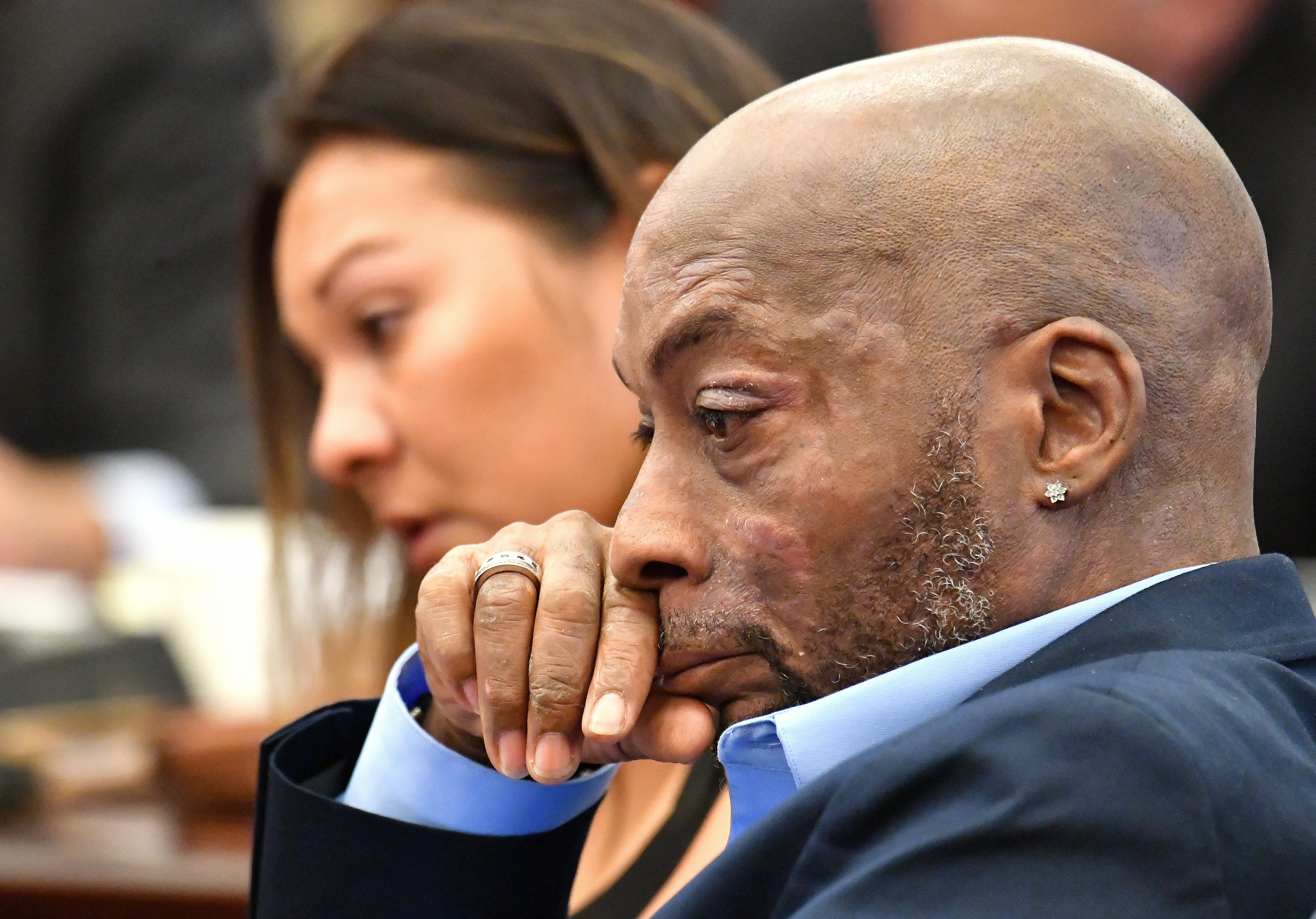Dying groundskeeper to testify in Roundup cancer trial
Photo: Californian groundskeeper Dewayne Johnson — seen in this file photo — is to testify July 23, 2018 before the jury on whether a Monsanto weed killer is to blame for his terminal cancer (JOSH EDELSON) | ©AFP
San Francisco (AFP) – A California groundskeeper dying of cancer prepared to testify Monday before jurors hearing evidence in his lawsuit blaming Monsanto weed killer Roundup for his terminal illness.
The trial pitting 46-year-old Dewayne Johnson against the agrochemical colossus is expected to last into August, with the potential for a major impact on the company recently acquired by German-based Bayer.
The case is the first to reach trial alleging a cancer link from Roundup, one of the world’s most widely used herbicides.
Johnson arrived in court Monday with his lawyer and wife, and watched as his dermatologist Ope Ofodile testified in the California Superior Court trial.
The legal clash involves dueling studies, along with allegations Monsanto connived behind the scenes to thwart potentially damning research.
Diagnosed in 2014 with non-Hodgkin’s lymphoma, a cancer that affects white blood cells, Johnson used a version of Roundup called “Ranger Pro” repeatedly in his job at a school in Benicia, California, after being promoted to groundskeeper in 2012.
Ofodile testified that Johnson consulted her when he noticed a rash on his body starting in 2014.
“He was frightened by the state of his skin,” the physician told the trial.
After seeing the rash, Odofile said she sent a letter to the school district board saying “that he shouldn’t be exposed to any airborne chemicals that could worsen his condition.”
Asked whether she was referring to Ranger Pro, she said, “Yes.”
But the physician said she did not investigate what caused the rash, and that she was focusing on treating the patient rather than establishing a link to Roundup.
Johnson had little warning about the risks of Roundup, his lawyer said in opening statements earlier this month.
“He was told you could drink it, it was completely non-toxic,” lawyer Brent Wisner claimed in his opening remarks.
The lawyer said Johnson, who is between rounds of chemotherapy, “is actually on borrowed time — he is not supposed to be alive today.”
A key to Johnson’s case will be convincing jurors that Monsanto’s pesticide — whose main ingredient is glyphosate — is responsible for the illness. Wisner contended that glyphosate combined with an ingredient intended to help it spread over leaves in a cancer-causing “synergy.”
– Potential impact of case –
Whether glyphosate causes cancer has been the source of long debate among government regulators, health experts and lawyers.
If Monsanto loses, the case could open the door to hundreds of additional lawsuits against the company.
Monsanto has denied any link with the disease and says studies have concluded the product is safe.
“Mr Johnson’s cancer is a terrible disease. We all do and we all should have great sympathy for what he is going through,” Monsanto defense attorney George Lombardi said during his opening remarks.
But the lawyer maintained that “the scientific evidence is overwhelming that glyphosate-based products do not cause cancer, and did not cause Mr Johnson’s cancer.”
Monsanto’s flagship herbicide Roundup was launched in 1976.
Roundup has been approved by the US Environmental Protection Agency, according to Lombardi.
In 2015, the International Agency for Research on Cancer — a World Health Organization body — classified glyphosate as “probably carcinogenic,” and as a result, the state of California listed it as carcinogenic.
Founded in 1901 in St Louis, Missouri, Monsanto began producing agrochemicals in the 1940s. It was acquired by Bayer for more than $62 billion in June.
Disclaimer: This story has not been edited by Siliconeer and is published from a syndicated feed. Siliconeer does not assume any liability for the above story. Validity of the above story is for 7 Days from original date of publishing. Content copyright AFP.


